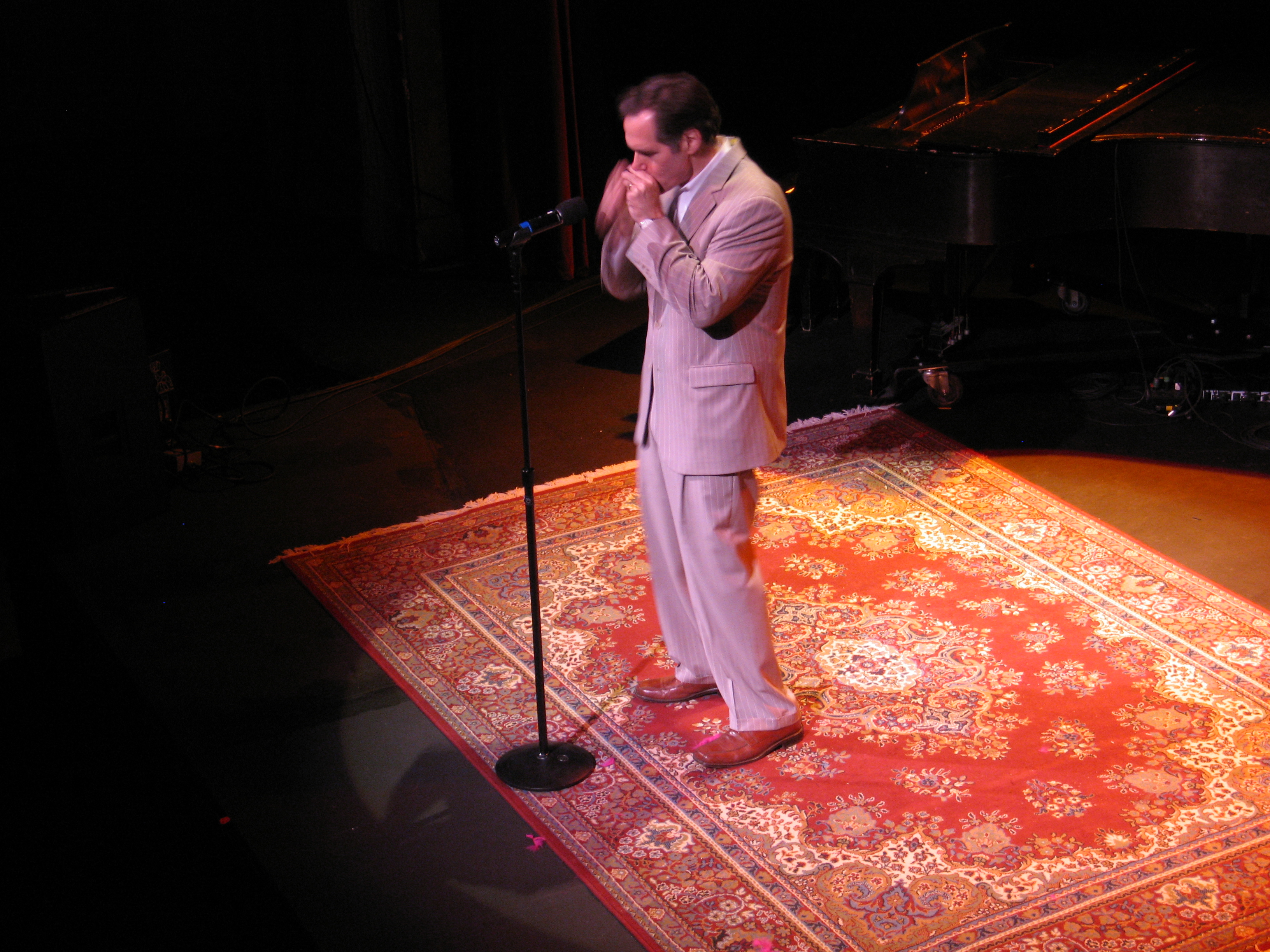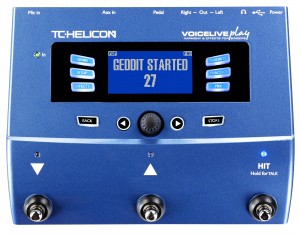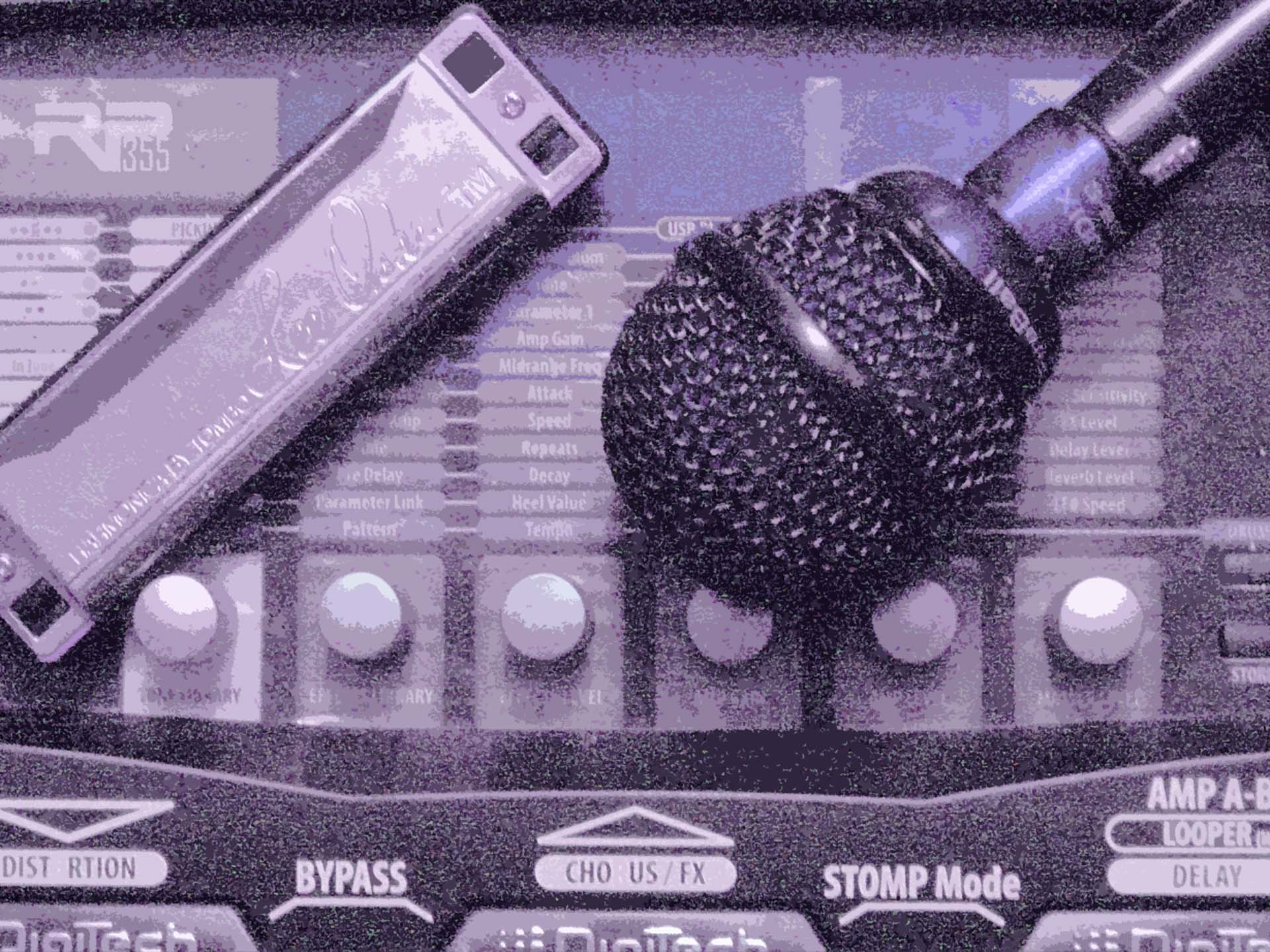
My first dedicated vocal processor: TC Helicon Voicelive Play
I took delivery on my first dedicated vocal processor–the TC Helicon Voicelive Play–yesterday. I’ve been working up to this for a while. It started when I began to sing regularly at my practice sessions. Then I developed a vocal repertoire. Then I tried setting up my Digitech RP250 for vocals, with limited success. (Hey, it only took me 2+ years to nail it for harmonica…) Then, a few weeks ago, I reached the point where I figured that my singing–good, bad, or anything in-between–was here to stay, and I needed to make my voice sound better, if not exactly Good.
“Good”, of course, is pretty subjective. Lucinda Williams sounds good to me, at least when she’s not apologizing in concert for being off-pitch all the time, a “problem” that to me is part and parcel of her vocal goodness. But that’s the point: some people sound good because they ooze technique; some people sound good because they ooze authenticity. (I just want to sound good because I don’t sound horrible.)

I bought the Voicelive Play because it’s a floor pedal, which I prefer for my onstage gear, not too steeply priced at a little under $250 (reduced another 15% in this case via a Thanksgiving Black Friday sale), and well-featured for a vocalist who wants some decent sounds right out of the box. When the thing arrived, I set it up on the floor next to my RP355 and JamMan Stereo, and started going through the presets. The latter are named to evoke the sounds of hit record lead vocals (e.g. “Cali Hotel” for “Hotel California”, “Losing Religion” for “Losing My Religion,” etc.), and that’s helpful when it comes to choosing a sound (at least if you’ve got the sounds of those hit records firmly implanted in your musical mind).
I haven’t had time yet to run through everything, and in particular, I haven’t tested some of the more modern features of the box, like pitch correction. But running through a couple of pieces from my vocal repertoire with this thing confirmed that I do indeed sound good-er with it than without it. My voice sounds bigger and wider; it cuts through the band better; it has a much more consistent tone and presence. The Voicelive Play seems to have injected confidence into my sound, or at least a combination of compression, EQ, and reverb that sounds like confidence.
I haven’t bothered to try this thing with the harmonica, and I doubt I will for awhile. It’s tempting to make a single processor do everything on stage, and it’s certainly less expensive than having a dedicated processor for each and every instrument. But in the end, you get better sounds with processors dedicated to each instrument, and better sound is what I want the most from my gear. So this thing stays dedicated to vocals for the foreseeable future.
Related Posts
5 Comments
Leave a Reply
You must be logged in to post a comment.
WHAT’S NEW
Categories
- Audio/Video
- Blog
- Blue Future
- Digitech RP Tricks and Tips
- Discography, CDs, Projects, Info, Notes
- Featured Video
- For the Beginner
- Gallery
- Hunter's Effects
- Hunter's Music
- Huntersounds for Fender Mustang
- Meet the Pros
- More Video
- MPH: Maw/Preston/Hunter
- My Three Big Contributions
- Player's Resources
- Pro Tips & Techniques
- Recommended Artists & Recordings
- Recommended Gear
- Recorded Performances
- Reviews, Interviews, Testimonials
- The Lucky One
- Uncategorized
- Upcoming Performances
- Zoom G3 Tips and Tricks

The Voice Live Play series offer fantastic vocal processors for singers who are looking for an all-in-one solution. If you can afford the VoiceLive 3, that’s the one to buy!
@SP: Mine works for me. Thanks, RH
You won’t want to play harmonica through it, even in bypass mode. It’s a known issue that playing harmonica through a TC Helicon product will result in signal break up/loud crackling noise which results having to shut the unit down (in the middle of the song) and turning it back on.
Ive also found the same problem when whistling (think My Bojangles at the beginning), so I now use a 2nd MIC to bypass the unit directly for this kind of thing, which of course negates some of the benefits
Same problem as Mikel and Roland, a crackling noise in my PA box when I use the TC Helicon Harmony Singer by playing Mouthharp and Whistling. That’s a pity, on stage I can’t use it anymore.